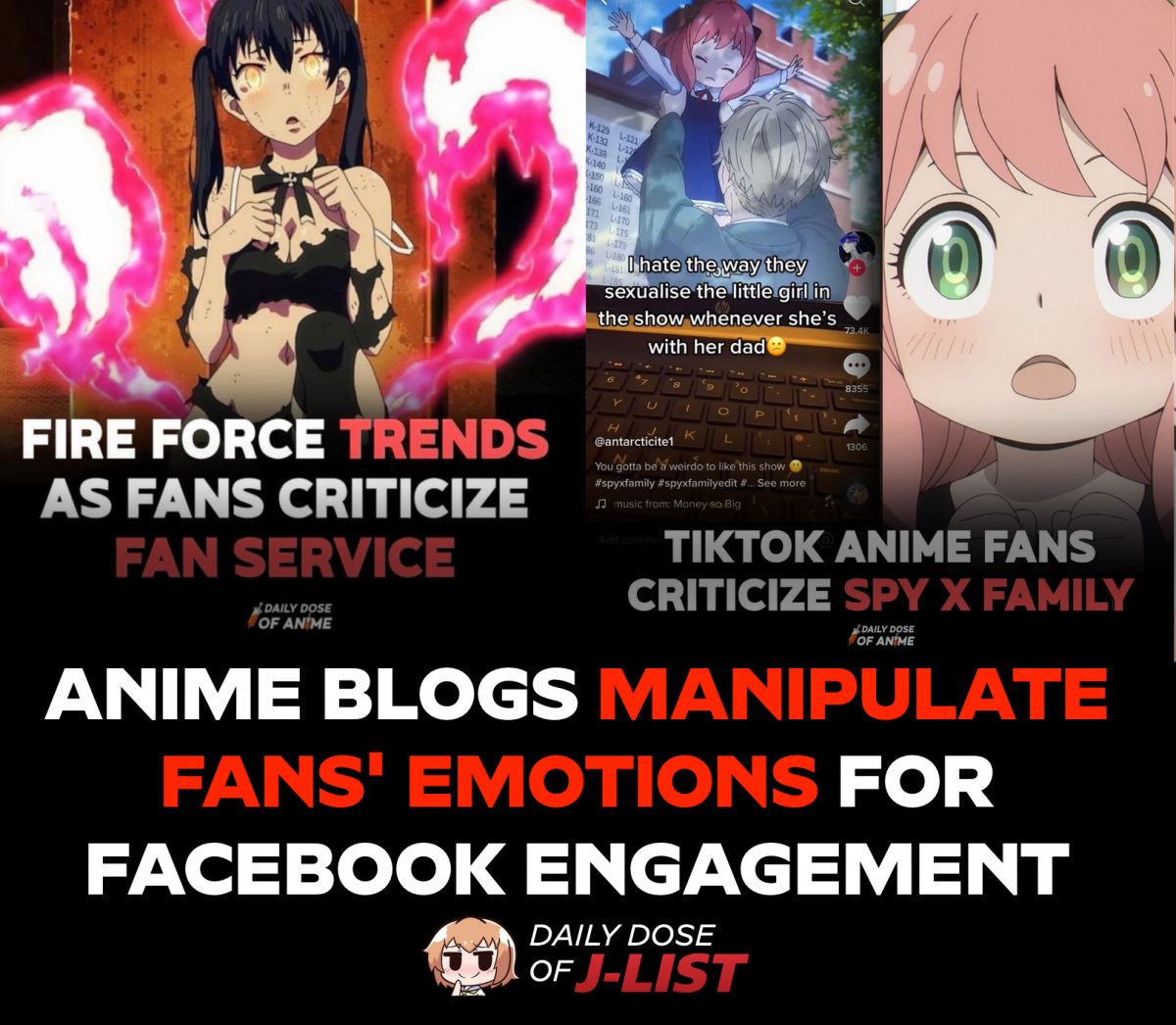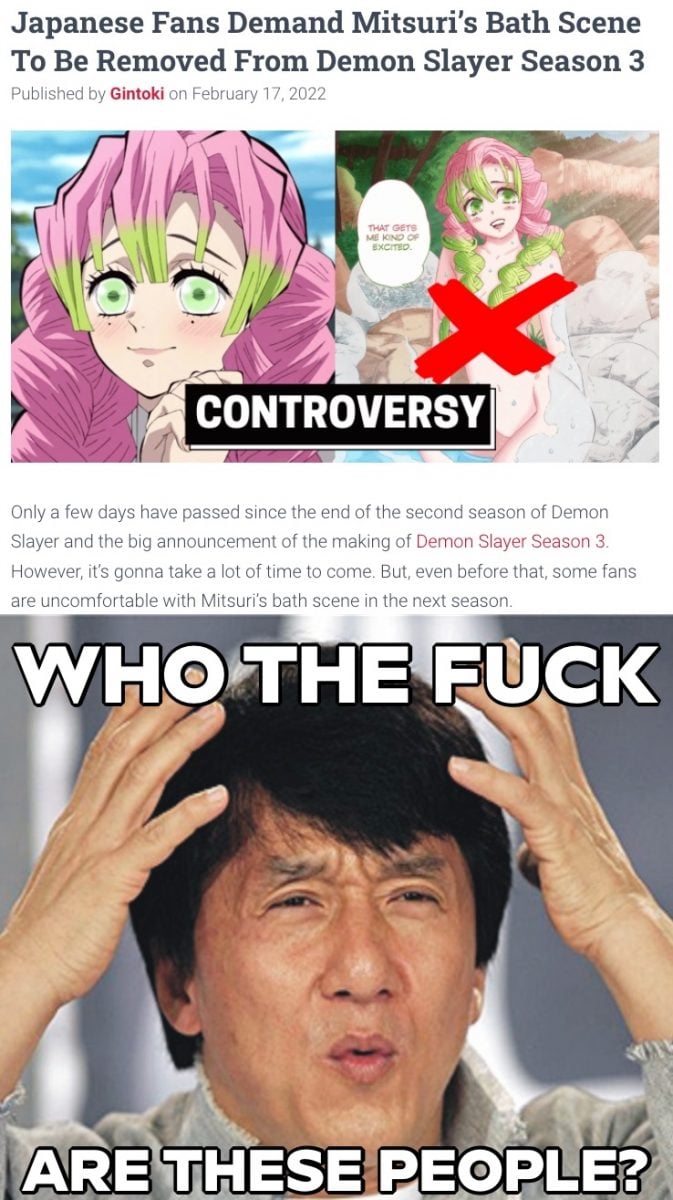As a general rule, I love social media. I love the way I can chat with anime fans from all over the world, exchange views or recommendations, and generally feel connected with chill, like-minded people. And as a retailer of anime and hentai products and publisher of visual novels and licensed hentai doujinshi, being able to reach my audience on Twitter and Facebook to showcase our new products is also very important.
But social media is far from perfect, as we all know. It can spread “fake news” while normalizing the questioning of any and all information, even from extremely reputable sources. It can cause us to obsess over famous people in unhealthy ways. And to people who understand how the algorithms work, we can find ourselves being manipulated in unwelcome ways to generate clicks. This can sometimes be nefarious, like when bad actors get you to provide private information on Facebook that they can use to crack your passwords, or merely annoying, like when a person with a random opinion in one corner of the Internet can have his comment get blown up by anime blogs who want to manipulate fans’ emotions and “drive engagement” on their social media pages. Keep reading for more details!
How Anime Blogs Manipulate the Emotions of Anime Fans For Facebook Engagement

A couple of years ago I started noticing single-panel memes from two anime blogs that had an ingenious concept: encode a piece of anime news or other information in a square, Instagram-friendly format that communicated meaning instantly and could likely be spread on social media. While 98% of these “visual soundbite” anime memes were generally informative and helpful, some went beyond providing news or valid observations about the anime world today. Sometimes they took a more “editorial” stance, implying that “fans” (the implication being “all fans”) were criticizing this or that aspect of anime as sexualizing or “problematic,” which is guaranteed to get a reaction out of fandom.
When a TikTok user named antarcticite1 made a short video complaining about “sexualization” in Spy x Family — which is a ridiculous opinion if you’ve watched even one episode of this wholesome show — the Internet Reaction Machine did as you’d expect and made sure this video got tons of attention, so fans could get properly outraged. This included the blog in question, which made one of its square memes proclaiming that “TikTok anime fans criticize Spy x Family.” This post earned the site 16k shares on Facebook and 6.3k comments and was probably seen by millions on that platform alone.
Now, opinions are like buttholes: we can drink water through them if we get marooned on a desert island. Er, I mean, we all have them, and they usually don’t smell good. People can believe whatever they want, and if I don’t agree, I’ll probably ignore them and move on. What I take issue with is the actions of certain anime blogs who “weaponize” random opinions expressed on the Internet in order to create content that will generate outrage, and willfully manipulate fans in order to drive social media engagement.

There are plenty of other examples. If three fans express an opinion somewhere in the comment section of a YouTube video, it’s not totally inaccurate for a blogger to pen an article about how “a lot of people are saying…” such-and-such… but it’s a bad thing to do, and people who do this should feel bad. Especially if it’s for the cynical reason of creating fake “controversy” to juice their social media numbers.

The Rise of Algorithms in our Lives
It might be a nerdy thing to say, but I love algorithms, and I live my life by them as much as I can. Whether it’s plotting how I’m going to approach the blog posts I’ll write this week, what balance of sexy vs informative tweets I’ll create tonight, or how often I’ll go to the gym, I’m generally trying to create the perfect approach to my life as if it were an algorithm I’m programming. And with the rise of technology, algorithms have become an even bigger part of many things we do.
While some companies’ algorithms can be mind-blowingly complex — how the hell is Google Images able to find that one anime bath scene image from 1994 that I’m looking for? — other algos, such as the one Facebook uses, are a lot easier to figure out. Let’s look at how it works.
Facebook wants to keep you on its platform by showing you stuff you care about and want to engage with. There are several “levels” to how Facebook sees your relationship with every other part of their site:
- Are you friends (if between individuals), or have you “liked” the page (if a Facebook page is run by a company or fan group)?
- Have you manually set your preferences to “follow” (see more posts by) the individual or Facebook page, or has Facebook set this for you based on your behavior?
- Do you share posts from the individual or page with others? If so, you must really like the content.
- Finally, and most importantly, do you comment on nearly every post made by the individual or page? If not, the company will assume your interests have changed, and show you something else.
Sometimes the limitations of Facebook’s system can be blatantly obvious. I’m a fan of WWII battleships, and “liked” the official Facebook page of the U.S.S. Iowa. For a week or two Facebook showed me posts from the page and its members, but since I didn’t obsessively comment on every single post (how much fresh discussion about an 80-year-old battleship can they expect?), Facebook assumed I didn’t like the content and stopped showing it to me. No WWII battleships for you, Peter!

How Anime Blogs Get Fans to Share Their Facebook Content and Comment
There are many clever ways to get people to share your content on social media sites. Use a clickbait image, implying that some shocking revelation is hidden in the article. Use a clickbait title, though not too clickbait-ey, as people start to catch on. Another way is to provide topical news in a timely manner, which is why there are so many anime blogs falling over themselves to report when news of a new season of some series is announced.
But what about getting users to comment on posts? Again, there are some tried-and-tested approaches that work, some of which I myself do on the J-List blog from time to time. Asking readers to share who their first 2D waifu was. Posting content they can connect with emotionally. Or writing a “hot take” on any timely topic, like my post exploring reasons behind the failure of the Netflix live-action Cowbebop anime adaption, or delving into how Sony “conquered” anime with their purchase of Crunchyroll.
This is all fine, and all part of the normal way social media is supposed to work. What isn’t cool are posts or memes designed to misrepresent a subject in order to create discussion about issues that don’t actually exist.

YouTube is Part of the Problem, Too
I’m not just calling out anime blogs that post out-of-context memes so they can whip up fans on subjects that aren’t remotely important to them in the slightest. There’s a whole genre of YouTube video in which creators post their reactions to individual episodes of anime, in many cases complaining that the themes are “problematic” or sexist or racist, or whatever will set their viewers into “keyboard warrior” mode. YouTubers have learned how easy it is to manipulate their viewers, making “reaction” videos on any topic… even a random YouTube thread about “canceling” Spy x Family.
J-List Customers React to Memes by Anime Blogs Designed to Manipulate Their Emotions

I hate it because it really just adds fuel to the fire. “One random obvious baiter said X, so let’s post it everywhere, giving the people who disagree ammunition and make them think more people are like that than there really are.”

These aren’t Anime fans. No true Anime fan attacks other fans or an author if their feelings got hurt by a drawing.

Do they think Anya is being sexualized? Tell me you haven’t watched the show without saying you haven’t watched the show…

Then Rudeus from MT gets a bunch of hate, too. People completely glossing over that this is a redemption story about a hurt, flawed person trying to find happiness.
Thanks for reading this post exploring how some anime blogs or other unsavory characters go out of their way to create controversy and manipulate the emotions of fans. Got any more examples of this kind of thing happening? Post them below, or reply to us on Twitter!
We’ve got great news for fans of our J18 Publishing 100% uncensored + translated doujinshi: two new books for you, which are in stock right now in San Diego! Grab Trade Off, a great exploration of erotic love, and the equally gorgeous The Closing Arcana, both ready for you to grab right now!
















